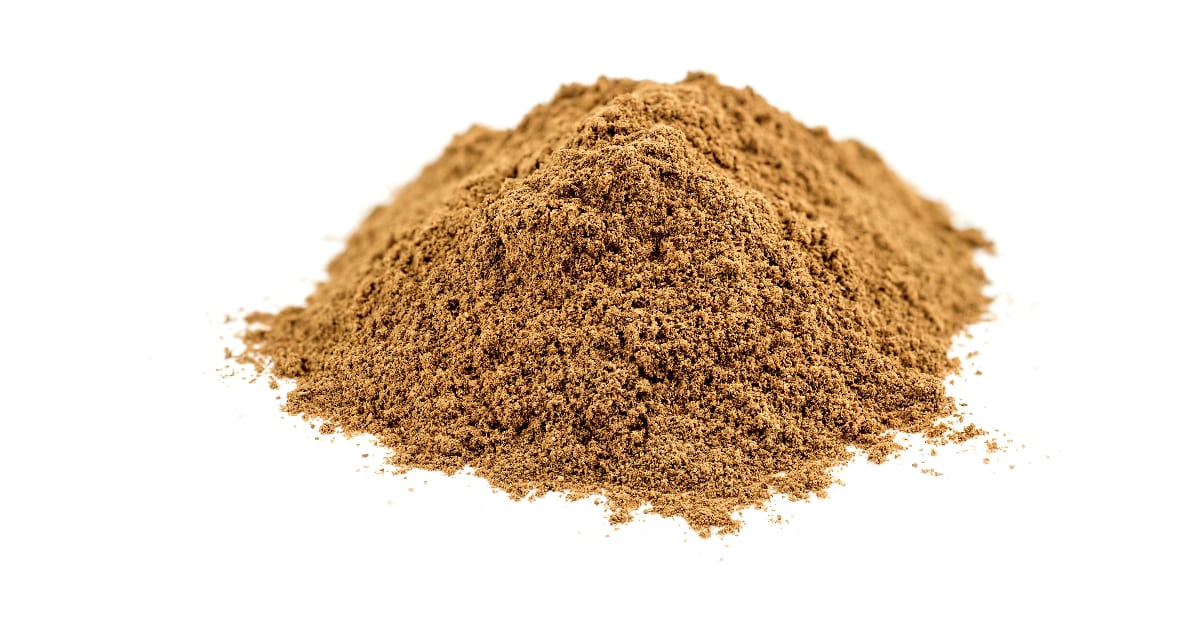Carob powder is high in carbs and should typically be avoided on a ketogenic diet. Carob contains nearly 50g of net carbs per 100g serving, which is significantly higher than the 20-30g daily carb limit for ketosis. While carob powder has some vitamins and fiber, its high carb content makes it difficult to incorporate into a keto lifestyle.

There are keto-friendly alternatives to carob powder, such as cacao powder or nut-based flours, that provide lower carb options. When evaluating foods for keto, it is important to consider both macros and ingredients.
Carob Powder's Macros Are Not Keto-Friendly
Carob powder is very high in carbs, which makes it challenging to fit into keto macros. A 15g serving of carob powder may contain 7g of net carbs. To remain in ketosis, total daily carbs are typically limited to 20-30g per day. With such a high concentration of carbs, even small amounts of carob powder can raise carbs over the ketosis threshold.
Carob powder is low in fat. The keto diet follows a specific macronutrient ratio of about 70% fat, 20-25% protein, and just 5-10% carbs. Not only does carob powder have too many carbs, but it lacks the high fat content emphasized in keto. Foods like olive oil, nuts, salmon, and avocados better align with keto macros.
Table Comparing Carob Powder to Keto Macros
| Nutrient | Keto Guidelines | 1 Serving Now Foods Carob Powder |
|---|---|---|
| Net Carbs | 20-30g per day | 7g |
| Fat | 70% of calories | 0g |
| Protein | 20-25% of calories | 1g |
This table illustrates how even a single serving of carob powder nearly provides almost one-third of the recommended daily carb limit for keto. Additionally, carob powder contains no fat and minimal protein. It does not align with the key macronutrient ratios emphasized in the keto diet.
Key Takeaway: Carob powder's high carb and low fat macro profile make it incompatible with keto ratios.
Potential Issues with Carob Ingredients on Keto
Beyond macros, it is also important to evaluate ingredients when selecting keto-friendly foods. Carob powder contains no added sugars or refined oils. However, even without those ingredients, it still does not fit a keto diet due to the high carb content from the carob itself.
On keto, it is essential to check both macros and ingredients. Foods may appear unprocessed or "clean" in ingredients, but still be too high in carbs to work for keto. Some key ingredients to verify are:
- Added Sugars: Ingredients like cane sugar, honey, agave should be avoided. These will add extra carbs.
- Refined Oils: Soybean, canola, vegetable, corn oils are highly processed. Better to choose olive, avocado, coconut, or nut-based oils instead.
- Preservatives and Emulsifiers: Ingredients like carrageenan, BHT, or polysorbate 80 indicate a highly processed food.
So while carob powder itself may not contain concerning ingredients, its macros alone make it a poor choice for keto. When evaluating any new food for keto-friendliness, be sure to check both the nutrition facts panel for macros and the ingredient list for any sneaky sources of added sugar, unhealthy oils, or chemical additives.
Alternative Low-Carb Options to Replace Carob
To replace carob powder and its sweet chocolatey flavor, there are several low carb alternatives to consider:
Cacao powder is an excellent carb-free, keto-friendly choice. Brands like Now Foods Cocoa Powder or 365 Organic Cocoa contain only 1g net carb or less per serving. Cacao powder offers antioxidants and rich chocolate taste without the high carbs.
Nut flours like almond flour or coconut flour work well in keto baking. With only a few net carbs per serving, they can mimic grain flours. However, more eggs or liquid may need to be adjusted in recipes to account for moisture differences.
Low-carb sweeteners are another way to recreate sweet flavors without the carbs. Monk fruit or stevia brands offer zero-carb sugar alternatives to consider in place of carob powder.
Key Takeaway: Viable low-carb alternatives exist to recreate chocolate flavors without carob powder, including cacao powder, nut flours, and low-carb sweeteners.
FAQs
Can I eat just a little bit of carob powder on keto?
It's best to avoid carob powder altogether on keto. Even small amounts provide almost no fat and quickly add excess carbs. The high concentration of carbs can easily knock you out of ketosis.
What about mixing carob powder with heavy cream or coconut oil to up the fat ratio?
Adding fat doesn’t reduce the absolute carb count from the carob powder itself. You may end up consuming too many calories or struggle staying under your carb limit trying to balance the carob powder. It’s easier to use keto-friendly cocoa powder instead.
Is carob healthier than chocolate?
While carob does not contain caffeine or dairy like chocolate, it does not provide significant health advantages, especially on keto. The antioxidants in cacao can actually be quite beneficial. Given its stellar keto macros, cocoa is a smarter choice.
Can carob powder raise blood sugar?
Yes, carob powder is high in carbs so it can spike blood sugar. On keto, keeping blood sugar stable is vital. Even those without diabetes or insulin resistance find better blood sugar management reducing carbs and emphasizing healthy fats instead.
Conclusion
Carob powder is not a good fit for the ketogenic diet due to its high carb content and low fat levels. Just a 15g serving can provide almost one-third of the daily carb limit for ketosis. Additionally, carob powder does not align with the key macronutrient ratios for keto emphasizing high fat intake.
Alternatives like cacao powder, nut flours, and low-carb sweeteners can provide ways to mimic sweet, chocolatey flavors without the excess carbs. When considering any new foods for keto, be sure to evaluate both the macro and ingredient profile to select low-carb, high-fat options. Avoiding carob powder helps lower carb intake and blood sugar levels to better maintain a fat-fueled, ketogenic state.

